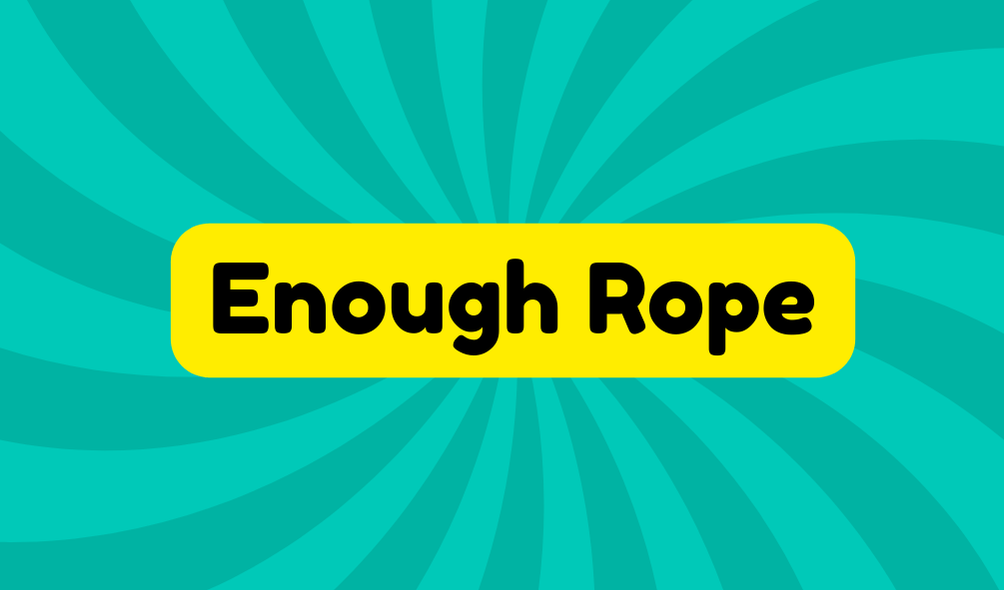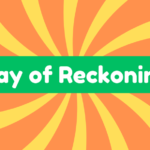The phrase "enough rope" refers to the freedom individuals have to make choices, often indicating that this autonomy can lead to either success or failure. Originating in ancient Greece, it gained popularity in 17th century England, where it symbolized the consequences of poor decision-making. For example, granting an employee enough rope can reveal their true capabilities or shortcomings. In education, this idea can empower students to take responsibility for their actions. While it promotes independence, excessive latitude may result in self-destruction. Understanding this phrase's full implications can enhance your awareness of accountability and decision-making in various contexts.
Synonyms
Synonyms for the phrase "enough rope" encapsulate the concept of granting freedom or autonomy, often leading to self-revealing outcomes. Understanding these related phrases is significant in various contexts, from management to personal relationships. Here are a few pertinent terms:
- Leeway – A term signifying the freedom to make decisions or mistakes, often with significant consequences.
- Breathing room – Suggests a space allowing individuals to navigate their actions, revealing their true nature.
- Autonomy – Represents the empowerment to act independently, highlighting the risk of self-destruction alongside potential growth.
While these synonyms convey a similar essence, a cautious approach is advisable, as granting too much freedom may illuminate unintended flaws or misjudgments. Ultimately, context determines the effectiveness of these terms in revealing character through chance.
Example of Sentences
To illustrate the phrase "enough rope" in various contexts, consider the following example sentences that demonstrate its application in real-life scenarios:
- The CEO provided the manager with enough rope to reveal poor decision-making through costly mistakes.
- A teacher granted a disruptive student enough freedom, ultimately encouraging them to adjust their behavior.
- Lisa entrusted her friend with enough rope regarding a borrowed amount, leading to lessons on responsibility.
These examples show how idiomatic expressions like "enough rope" manifest in different situations. They depict autonomy leading to personal accountability, emphasizing the value of experiencing consequences firsthand. In exploring these real-life applications, we recognize that freedom can both illuminate and complicate human behavior, presenting a blend of possibilities and pitfalls that warrant careful navigation.
Origin
The idiom "enough rope" carries with it a rich tapestry of historical significance that can be traced back to ancient Greece. Early interpretations often associated the term with the grim realities of punishment, where long ropes were used for executions or labor. As societies evolved, so did the idiom. In England, during the 17th century, the phrase gained traction amid public hangings, symbolizing the potential for self-sabotage when autonomy was granted. This evolution reflects not only a shift in societal punishment views but also highlights the complexities of personal responsibility. Today's usage underscores that too much freedom can lead to one's undoing, an idea rooted in historical contexts that continue to resonate in modern discourse on decision-making and ethical boundaries.
Collocations
Collocations related to the idiom "enough rope" often illustrate contexts in which autonomy leads to self-discovery, error, or downfall. The interplay of freedom and responsibility can be enlightening yet perilous, making these phrases significant in understanding both potential and risk.
- "Rope of freedom" highlights the thin line between independence and chaos.
- "Rope to hang oneself" underscores the dangers of granting too much freedom.
- "Length of rope" symbolizes the extent of autonomy provided.
These collocations with rope serve as idiomatic expressions that emphasize the balance between trust and accountability. They provoke thoughtful consideration of how we navigate personal choices and the consequences that arise from an over-abundance of liberty. Understanding these nuances is essential for fostering wisdom in decision-making.
How to Use in Everyday Language
Incorporating the idiom "enough rope" into everyday conversations can enhance clarity when discussing trust and autonomy. Understanding this phrase allows individuals to navigate complex situations where freedom and responsibility intersect. In everyday situations, using "enough rope" can serve as a cautionary reminder when engaging with colleagues, friends, or family. For instance, in a workplace setting, a manager might say a team member was given "enough rope" to develop their project, hinting at the risks involved. Such practical applications exemplify the balance of encouraging independence while remaining aware of potential pitfalls. By strategically using this idiom, one can articulate the importance of discretion and the consequences of unbridled freedom, fostering deeper conversations about accountability and human behavior.
Why Is It Still Relevant Today?
Autonomy remains a central theme in modern society, underscoring the relevance of the idiom "enough rope." As individuals navigate complex professional and personal landscapes, the metaphor serves as a poignant reminder of the delicate balance between granting freedom and the potential consequences that accompany it. Its cultural significance persists as people face the implications of their decisions and actions.
| Context | Modern Implications |
|---|---|
| Business Leadership | Trust can reveal competence or failure |
| Education | Freedom fosters responsibility among students |
| Relationships | Autonomy often showcases true character |
| Politics | Allowing freedom exposes true intentions |
Understanding this idiom encourages critical thinking about the autonomy we give others, reminding us that freedom can lead to both growth and peril.







